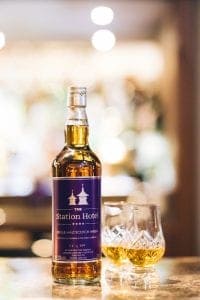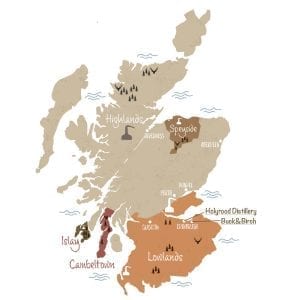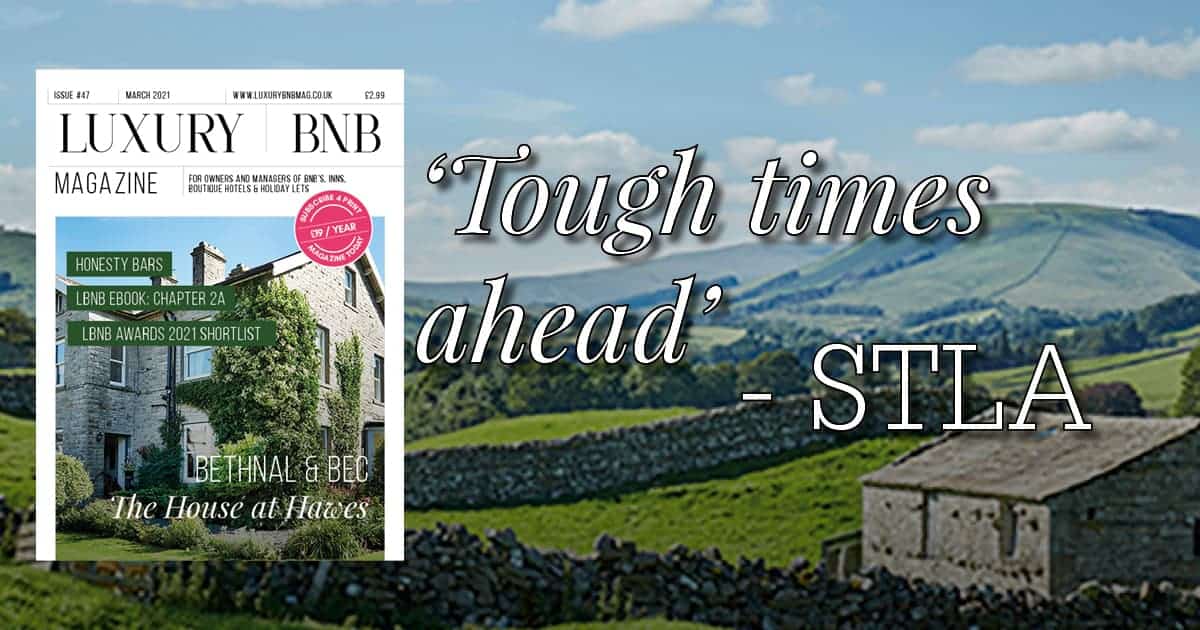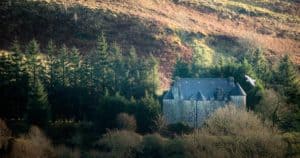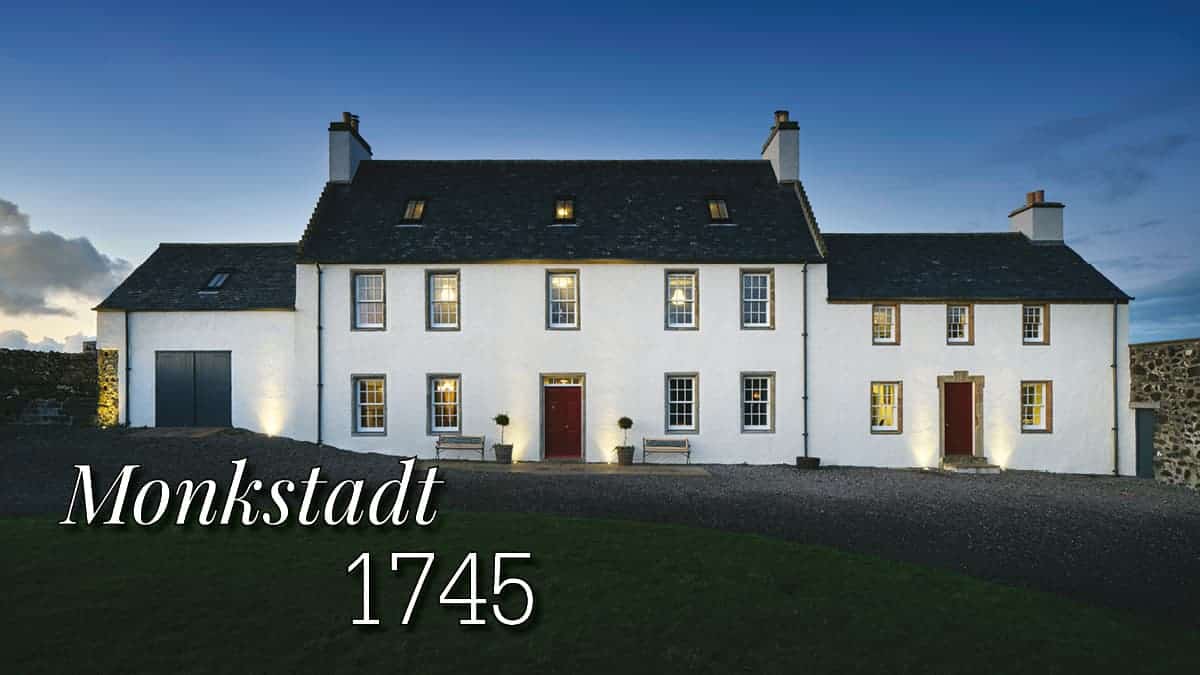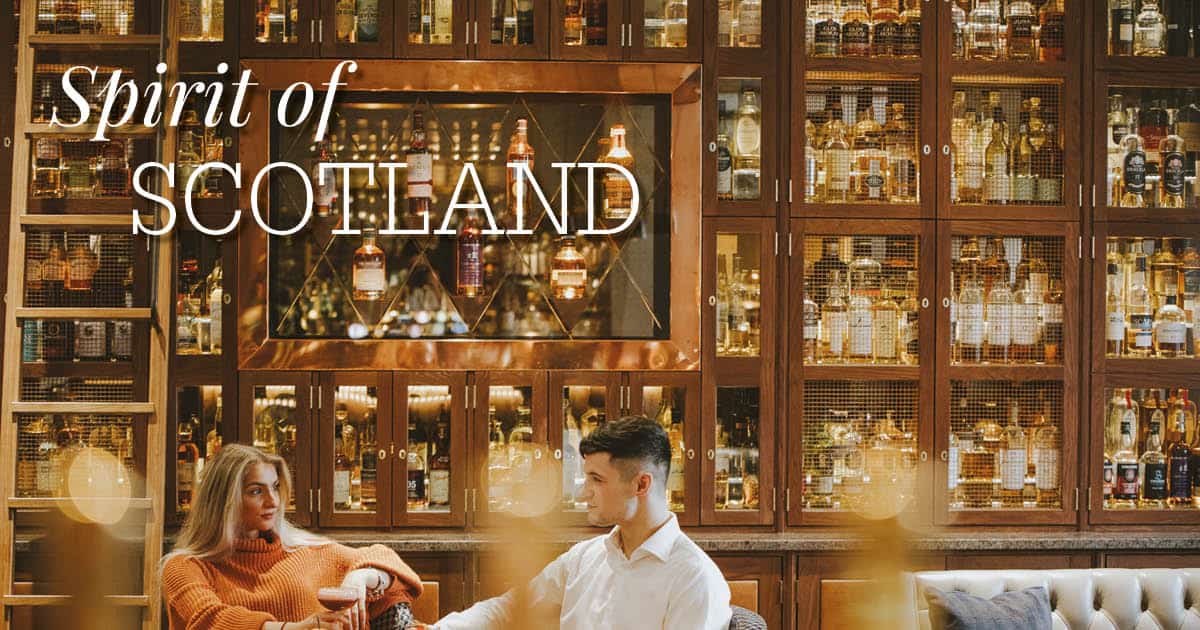
We spoke to three hotels who are experts at combining the Luxury whisky industry with luxury hospitality. They’re here to help you get a foot in the door.
The wild lands of Scotland are full of mystery, beauty… and a lot of whisky.
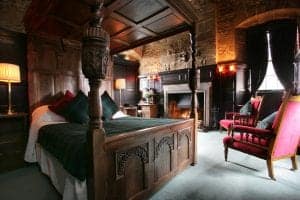
In Scotland alone, there are over 120 active whisky distilleries across five whisky producing regions: Campbeltown, the Highlands, Islay, the Lowlands and Speyside.
With so many distilleries in one place, there are a lot of potential customers who want to experience the spirit of Scotland.
But how do you get involved? How do you pull these whisky lovers through the doors of your guesthouse, inn or b&b?
Whether you’re new to the whisky industry or you already know quite a bit, we spoke to three experts to get the lay of the land and find out what you can do.
Luxury Whisky Tourism
The whisky industry is a major contributor for Scotland’s tourism industry.
Everyone will host a variety of guests, but you’re guaranteed to host people from all over the world if you begin hosting whisky enthusiasts.
Owner and managing director of Dornoch Castle Hotel, Colin Thompson, said: “The beauty of whisky tourism is, it’s unlike any other kind of tourism.
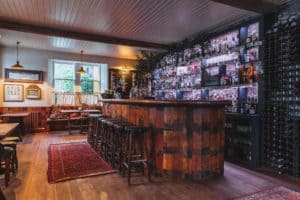
“Whisky tourism could bring in whisky clubs from Sweden, Germany, Norway, France, Italy, Japan, Taiwan… anywhere really.
“But at the moment we’re dealing with almost purely British tourists in the aftermath of COVID-19.”
In contrast to Dornoch’s typically international guest list, Kevin Smith, Director of the Craigellachie Hotel, said: “I would have always said that the majority of our guests are overseas travellers, but that’s actually not the case.
“57% of our guests actually come from the UK and then the next biggest demographic, or geographic, is guests from the US.”
Station Hotel’s in-house whisky expert, Stephen Crossland, said: “Generally, we get a lot of people from the UK. We do get a lot of international guests but depending on the time of year, depends on what country it is, because different countries have different holiday periods.
“One week we’ll have a lot of Indian people, the next week we’ll have a lot of Chinese people.”
Dornoch Castle Hotel’s Colin said: “Interestingly, whisky tourists are prepared to come when others are not. It would be normal to have whisky groups right from early February right through to the end of November.
“You never know who you’re speaking to. You get some guys [who are] experts and know their stuff. But in the summer, you get a lot of golfers and they know nothing or very little.”
“Whisky’s an indoor sport that’s not reliant on sunshine, so it gives us an additional seasonal boost.”
– Colin Thompson, Dornoch Castle Hotel
If you get involved with the whisky industry, you’ve got to be prepared to receive a variety of guests from all over the globe.
Stephen from Station Hotel said: “I did a lot of travelling around the world in my previous days, and it’s nice when you have guests from places you’ve visited.”
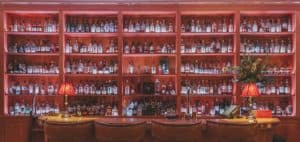
Through international travel and business relationships, Dornoch Castle Hotel receives guests from all over the world and Colin says he’s noticed some patterns.
“In terms of bar owners and enthusiasts, they tend to be in the 30-50 age bracket, and they’ve got a few quid and can afford to come to the UK.
“But from our experience, the Taiwanese and Chinese demographic is slightly different. It’s much younger, maybe 20-35, very well off and probably have their own business. They’ll have an avid collection of something from the west and it may just be whisky. Luckily for us, they’re happy to take the more expensive whiskies.
“We’ve also found that people from Europe tend to be a bit older, generally in their 50’s. They’re people who made their money from business, but they’re a bit more cautious about spending.”
Despite hosting people from all over the world, they all have one thing in common.
Kevin, who works at the Craigellachie Hotel says: “Usually they have a very, very keen interest in whisky and that’s the reason why they’re here. It’s a big effort and a big spend for most of our guests to come from all corners of the world to spend some time in Scotland.”
Collaboration for Luxury Whisky
Whether you want to start hosting more whisky enthusiasts, set up your own distillery or gain industry connections, these three experts all strongly suggest collaborating with distilleries.
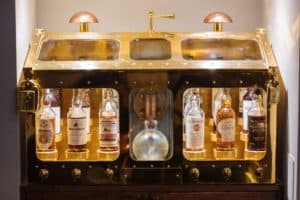
But how do you go about doing that? Stephen said: “Just get out there, go and visit the distilleries and talk to people.
“Station hotel is owned by Forsyth, one of the biggest manufacturers of distilling equipment in the world. They’re based right next door, so we get a lot of Forsyth clients come and stay with us.
“We’re in a very lucky position because we already have established relationships with a lot of distilleries as they all buy equipment from Forsyth.”
Kevin from the Craigellachie also suggested meeting “face to face is always good”.
“Nine times out of ten, you’ll find your request to go and have a look around, and try some of the whisky, is welcomed positively,” he said.
“At certain times of the year, some distilleries invite the hospitality industry in and take them on tours. They want people to be educated about their product and be able to pass that information on.”
Dornoch Castle Hotel and Distillery is well connected with international businesses and Colin’s sons, Simon and Phil, travel to Japan “at least once a year, sometimes twice, to host tastings.”
After running the whisky bar at the British Trade Fair in 2015, 2016 and 2017, the Dornoch owners found themselves in front of a brand-new audience and they now work with many businesses in the far east.
Whether you collaborate locally or internationally, Colin expressed the importance of travelling and meeting those you hope to work with.
“They’re just so delighted to see you, that you made the effort to travel all that way to go and see them. It cements the relationship,” said Colin.
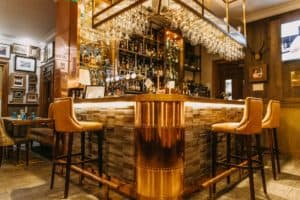
“They truly respect you for going out there and they reward you by working with you. So, depending on what you’re trying to achieve, you’ve got to be prepared to get your finger out and go over there.”
Dornoch’s Distillery is connected to the hotel and Colin believes in forging relationships between the hospitality and whisky industries.
“You need to go and speak to as many distillery managers as you possibly can. If there’s a local distillery near you, forge a relationship with them. Get them in for dinner. Any number of distributors will come and do tasting dinners, they are always happy to help you.
“Distilleries have very knowledgeable staff and they’ll suggest you get the managers over and do some demos for some customers. Hold a couple of specialist nights, maybe whisky dinners, and have them come and do some work with you.”
But you won’t be the only one wishing to forge these relationships. The distillery companies themselves will also be on the lookout for accommodation providers to work with.
Kevin from the Craigellachie said: “You’ll quickly find there’s another side to these relationships. It’s not just you sending guests there, but actually, these companies have a need for accommodation too because they’re always bringing people over to the UK.
“For example, let’s say one of the distilleries brings over a party of premium bartenders and they’re looking for a property to host them. By going on a tour and telling the visitor centre that you own accommodation, they would have forged a relationship with you, put you in touch with their room booker and before you know it, you’re on their list. It’s really simple.”
He adds: “I take real pleasure out of learning from them and having that very real connection with the visitor centres or the distillery workers.”
Stephen expressed that you should “just dive in” and said: “Don’t be shy. Don’t worry about looking silly. If you have a question, just ask it.”
Kevin added that, although it seems like a very corporate and formal process, connecting business to business isn’t all that bad.
“You’re entertaining people from the drinks industry, the press or brand ambassadors, so there’s very little corporate attitude about it. It’s fun, light-hearted and all about getting to know the brand and enjoying the whisky.”
You and Your Luxury Whisky Business
So, you’ve thought about potential guests and forging relationships with distilleries, but what can you do personally, with your own business?
Colin Thompson said: “Knowledge is everything. You’ve got to have a very detailed interest in the industry and the subject. Someone’s got to know exactly what you’ve got and be able to explain the differences and nuances between them all.
Kevin from The Craigellachie also said: “It helps to be genuinely interested in the drinks industry and whisky in particular. It’s good knowing about the history, the characteristics, and some of the fun stories that come out of these distilleries. Being able to pass that on to our guests in a fun and conversational manner, rather than a lecturing manner, is important.
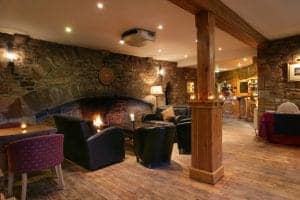
“Just the other day I chose one of over 900 bottles off the shelf. My bartender Angus started spouting off this story about King Alexander and it was the first time I’d ever heard this story and it still makes me impressed every day.”
Stephen also believes knowing the histories and stories of the whiskies you offer is advantageous.
“Everyone loves a story about the whisky that they’re drinking, and through our expertise and experience, we can share that with people. Get as much knowledge as you can. I would always suggest that you try and taste as many whiskies as you can to find out your own favourites.”
But whether you have this knowledge already or you acquire it later, Colin expressed the importance of having a great team working for you.
“If you have a bar, you’ve got to have someone really good. We try to find someone who’s trained in whisky bar service. Last season we had a guy from Australia who was brought up in China and his knowledge was absolutely stunning.
“You could go into any whisky bar who has thousands of whiskies in any city, but the person behind the bar might not know the slightest thing or have the slightest interest. It’s very easy to lose a customer if you haven’t got that detailed interest or knowledge behind the bar.
“It comes down to employing the right guys. Sounds crazy but the best we’ve had have been from the far east. Their dedication to the industry is just unbelievable.”
Stephen added: “An awful lot of the job is listening to someone when they tell you what they like and what they’re looking for. It’s about matching those two together.
“It’s not finding the best whisky overall, it’s about finding the best whisky for that person within their price range. You want as much knowledge as you can behind the bar so that you can help.”
“Passing information on in a fun and conversational manner, rather than a lecturing manner, is important.”
– Kevin Smith, Craigellachie Hotel
Kevin said that his team behind Craigellachie’s whisky bar, The Quaich, are one of a kind.
“We’ve got a great team and they’re genuinely interested in whisky. They immerse themselves in it and they love talking to our guests about it.”
He also expressed the importance of having the right attitude. He said: “A big portion of our guests have travelled a long way from Asia, northern Europe, or America. That’s a huge investment. We should be doing as much as we can to make that guest’s experience as special as possible.”
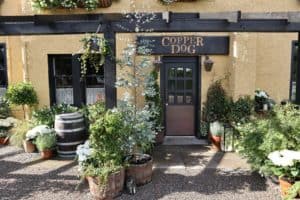
If you want to provide whisky for your guests, Colin advises being prepared to spend some money.
“It’s not a cheap game when you have a whisky bar. You can’t just buy £60, £70 bottles. You’ve got to be prepared to spend some serious money on stock.
“On a normal bar, you might have £10,000 pounds worth of stock. But, if you come into our bar, the stock values closer to £50,000. And that needs to be turning all the time. There’s no point in the bottles looking all pretty and dusty at the back for months on end. Get it out and get it sold.”
But it’s not just the whisky. Stephen said: “I think the most important thing is local knowledge. Which are the best distilleries to visit, what facilities each distillery offers and then everything else you can do here. It’s about promoting the whole area and giving people all the information so that they can decide what they want to go and see.”
He added: “Before guests arrive, you might want to find out if there are any particular distilleries or whiskies that they want to try, because sometimes, if you’re looking to book a tour, they’ll be full.”
Kevin said: “It’s about knowing what’s on offer locally and really selling the area, because you want these guests to have a great time and come back.”
The whisky industry is definitely something to consider getting involved with, but if your personal distaste for the spirit is putting you off, Stephen said: “Have a go. Have a taste. You will find a whisky that you like.”
Holyrood Distillery in Edinburgh has launched a cask programme offering the opportunity to create truly bespoke whisky. With a limited run of only 200 whisky casks in 2020, the programme allows customers to tailor whiskies to their tastes, by involving them in every stage of the production process. They are focusing on four new core spirit flavours: fruity & floral, sweet, spicy and smoky. Cask purchasers can tailor their choices.
“Have a go. Have a taste. You’ll find a whisky that you like”
– Stephen Crossland, Station Hotel
Stephen added: “Most people say they don’t like whisky and part of our job is to find the whisky that, actually, they do like. Even if it means adding a little bit of water, that’s absolutely fine.
“Just go for it.”
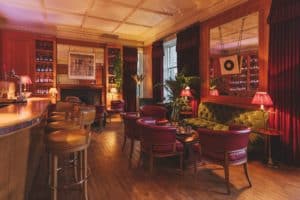
Top 6 Tips:
1. Go and talk to distilleries
2. Knowledge of the local area
3. Gain whisky knowledge
4. Have a knowledgeable whisky team
5. Have a personal interest
6. Be prepared to spend money
About the hotels
The 26 room Craigellachie Hotel, located in Speyside, is only a five-minute drive from the Macallan Distillery. Their very own Quaich Bar houses an impressive 900+ whiskies from all over the world.
The Dornoch Castle Hotel, located in the Scottish Highlands is connected to Dornoch Distillery, which is run by the Thompson brothers, the sons of the hotel’s owner. Dornoch Castle’s whisky bar has achieved international acclaim and is the No.1 Whisky Hotel of the year according to whiskybase.com.
Station Hotel is owned by Forsyth, manufacturers of distilling equipment. 60 distilleries are located within a 50-mile radius of the hotel. Their whisky bar is home to more than 500 whiskies as well as an impressive spirit safe
Whisky Distilleries and Regions
Highlands – 47 distilleries
Speyside – 50 distilleries
Islay – 9 distilleries
Campbeltown – 2 distilleries
Lowlands – 18 distilleries
Total distilleries = 126
For distillery locations, click on the regions or CLICK ON THE IMAGE.
A New Approach To Tours?
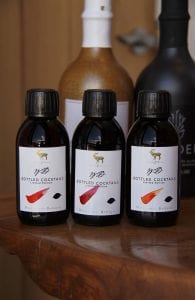
Buck & Birch, explorers, experimenters and wild flavour innovators, are on a mission to reconnect people to their environments through drinks, dining and wilderness experiences. Co-founders Tom Chisholm and Rupert Waites are the creators of Aelder Elixir and have recently launched their wild bottled cocktail range.
This Scottish based company have launched their ‘Restoring Vital Connections’ campaign, encouraging people to “take a walk on the wild side” to forage for rosehips and crab apples.
“We believe ingredients should be left as nature intended. We champion the fruit, the roots, shoots, leaves, buds and petals, doing as little as possible to divert from their natural flavour,” said Tom.
Buck & Birch enjoy taking people out into nature and educating them on how best to forage for ingredients. Rupert said: “It connects people to their environment in a positive way. Rosehips are a perfect place to start, being easy to identify and really abundant. Foraging is great for mind and body. What a better way to get exercise, fresh air and a greater understanding of the incredible and even exotic world right on your doorstep.”
Tom said: “Our approach is very different to most other producers and as a consequence, our drinks are very different too. We want to celebrate and share the fantastic flavours of the wild with as many people as possible.Each of our creations always starts with a walk in the woods. It’s a case of exploring and experimenting with the flavours we have found.”
The ethos of Buck & Birch is to “go back to the source” and hand harvest ingredients when they are at their best. It’s possible that these forest foraging walks are something that we should all take note of. Maybe the future for whisky based tours lies within forest walks?
URLs to note:
holyrooddistillery.co.uk/cask-owners/
This article was first published in Issue 43 of the Luxury BnB Magazine in October 2020:

